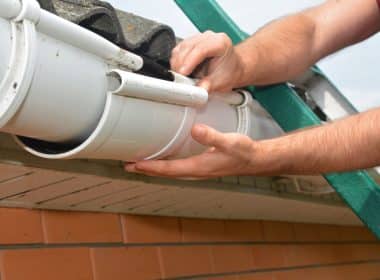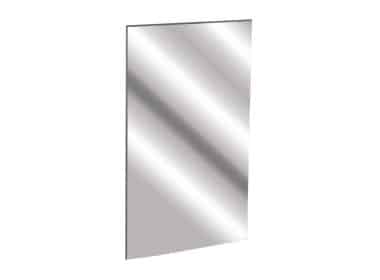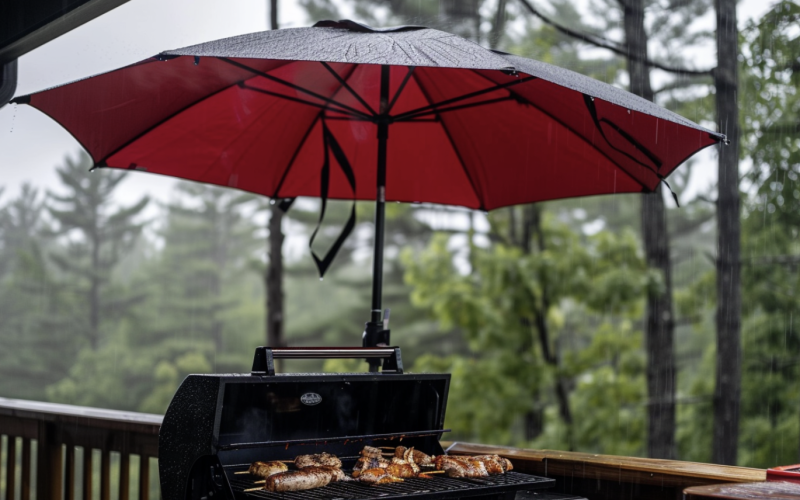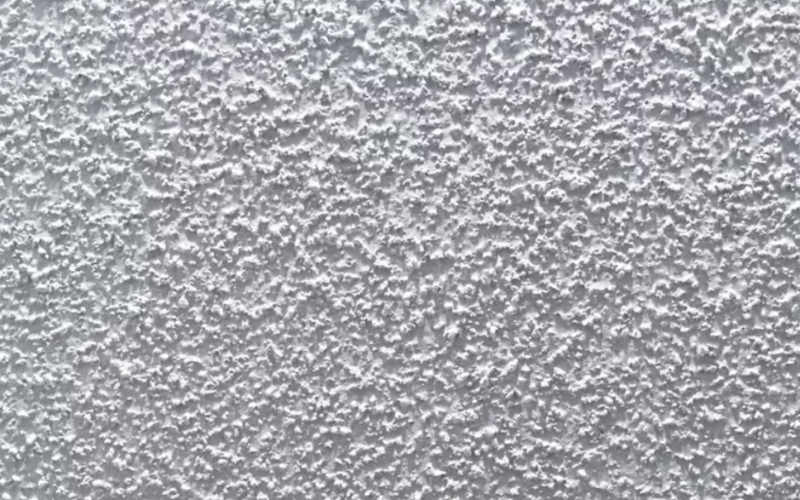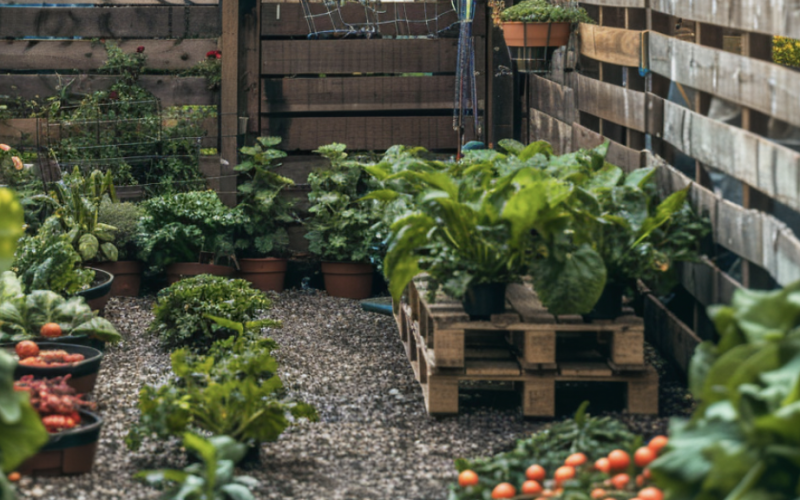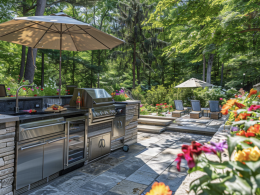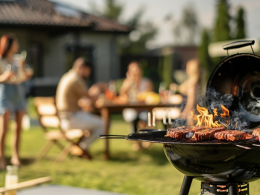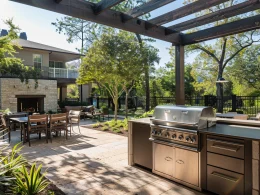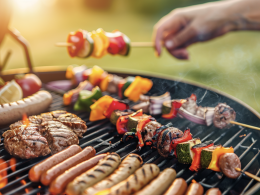You’re not alone in wondering if leaving your grill outside in the rain is safe. Many grill owners face this dilemma, especially when unexpected showers catch them off guard.
The good news is that you can protect your outdoor grill station from the elements with proper care and maintenance.
In this blog post, we’ll explore the effects of rain on various types of grills, discuss effective protective measures, and provide practical tips to keep your grill in top shape, no matter the weather.
By following our expert advice, you can enjoy your grilling experience without worrying about rain’s impact on your beloved barbecue companion.
So, let’s dive in and learn how to weatherproof your grill for years of delicious meals.
Impact of Weather on Different Types of Grills
The materials used in your grill’s construction significantly affect how it reacts to rain and moisture.
Understanding the sensitivity of different materials can help you make informed decisions about grill maintenance and protection.
Material Sensitivity
Stainless steel, cast iron, and other metals commonly used in grills have varying levels of resistance to rain and moisture.
Stainless steel is known for its durability and resistance to rust, making it a popular choice for outdoor grills.
However, even stainless steel can develop surface rust without proper care if exposed to prolonged moisture.
If left unprotected, cast iron grill grates and burners can quickly deteriorate, affecting their performance and longevity.
Other materials, such as aluminum and porcelain-coated steel, also have different moisture sensitivity levels.
Immediate and Long-term Effects
One of the most common immediate effects is the development of rust on exposed metal surfaces.
Rust can appear quickly, especially on cast iron components, and spread if not addressed promptly.
Moisture can cause other immediate issues, such as clogged burners, difficulty igniting the grill, and rust.
Water can also mix with ash and grease, creating a messy and potentially hazardous situation.
Over time, repeated exposure to rain and moisture can lead to more severe structural damage.
Rusted components can weaken and deteriorate, compromising the stability and safety of your grill.
Electrical components, such as ignitors and wiring, can also suffer from water damage, leading to malfunctions and potential safety hazards.
Protective Measures Against Rain
Implementing protective measures, such as using grill covers and exploring alternative strategies, can go a long way toward keeping your grill in excellent condition, even in rainy weather.
Grill Covers
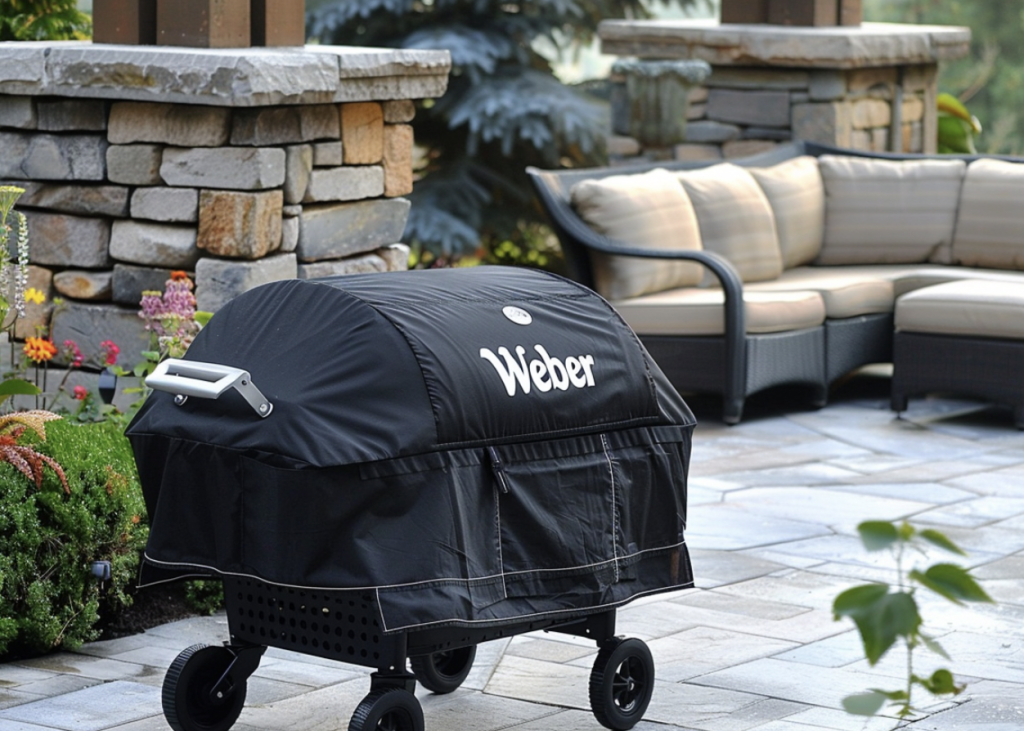
Grill covers are a barrier, preventing water, debris, and other elements from directly contacting your grill’s surfaces.
When choosing a grill cover, consider material durability, water resistance, and size compatibility with your specific grill model.
Look for covers with reinforced seams and adjustable straps to ensure a snug and secure fit, even in windy conditions.
Always allow your grill to cool completely before covering it to avoid trapping heat and moisture.
Clean your grill cover regularly to prevent the accumulation of dirt and mildew, which can compromise its protective properties.
Alternative Protective Strategies
One option is to place your grill under a shelter, such as a covered patio or a purpose-built grill gazebo.
This provides an extra layer of protection, shielding your grill from direct rainfall and reducing the amount of moisture it encounters.
If a permanent shelter is not feasible, consider using a portable canopy or umbrella when grilling during light rain.
Another strategy is to apply water-resistant coatings to your grill’s surfaces. High-temperature paint and sealants designed for grills can create a barrier against moisture, preventing rust and corrosion.
Preventive Maintenance in Adverse Weather
In addition to routine cleaning, preventive maintenance measures can enhance your grill’s resistance to rain and moisture.
One effective strategy is to use anti-rust sprays or protective paints designed specifically for grills.
These products create a barrier on the surface of your grill, repelling water and preventing rust formation.
Applying a thin layer of high-temperature cooking oil to the grates after each cleaning helps create a protective barrier against moisture and prevents rust.
Sand down rusted areas, apply a rust-resistant primer and repaint as needed. By catching and treating rust early, you can prevent it from spreading and causing more extensive damage to your grill.
Practical Tips for Handling Grills During and After Rain
Knowing how to handle your grill during and after rain is essential to minimize potential damage and ensure a seamless cooking experience.
During Unexpected Rain
If it starts raining while you’re grilling, don’t panic. Take the following steps to safely and effectively handle the situation.
- Assess the severity of the rain. If it’s a drizzle, you may be able to continue grilling with the lid closed, as the heat from the grill will help keep the rain at bay. However, if it’s a heavy downpour, it’s best to stop grilling and move the food indoors to finish cooking.
- If you need to stop grilling, turn off the gas supply, remove the charcoal, and extinguish it in a metal container with a lid. Never attempt to move a hot grill, as it can be dangerous and may cause injuries.
- Once the grill has cooled down, remove any remaining food and clean the grates and interior surfaces to prevent moisture from mixing with grease and debris.
- Moving the grill to a covered area or under a temporary shelter to protect it from further rain exposure.
- Dry the grill’s exterior with a clean cloth or towel, paying attention to any crevices or corners where water may accumulate.
Post-Rain Care
After the rain has stopped, it’s crucial to take proper care of your grill to minimize weather-related damage and ensure it’s ready for your next cookout.
- Suppose your grill is exposed to rain. Thoroughly dry all surfaces, including the interior, exterior, and removable components. Use a clean, dry cloth or towel to remove any remaining moisture.
- If you notice standing water in the grill’s interior or drip pan, carefully remove it and dry the affected areas.
- Inspect your grill for any signs of rust or damage. If you spot any rust, sand it down, apply a rust-resistant primer, and repaint the affected area to prevent further spread.
- Once your grill is completely dry, apply a thin layer of high-temperature cooking oil to the grates to prevent rust and maintain their non-stick properties.
- If you have a grill cover, ensure it is completely cool and dry before covering it. If the cover is wet, allow it to air dry before placing it over the grill to prevent moisture from being trapped inside.
- When not in use, store your grill in a covered area or under a shelter to protect it from further exposure to the elements.
Conclusion
Protecting your outdoor grill from the elements ensures its longevity and performance.
By understanding the impact of rain on different grill materials, implementing protective measures, and following proper maintenance and care practices, you can keep your grill in top shape, no matter the weather.
Remember to use a well-fitted cover, store your grill in a sheltered area when not in use, and clean it regularly to prevent rust and damage.
By taking these steps, you’ll be able to enjoy delicious grilled meals with family and friends for years to come, rain or shine.
So, the next time you wonder, “Is it safe to leave my grill outside in the rain?” you’ll know exactly how to keep it protected and ready for your next cookout.


